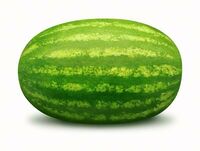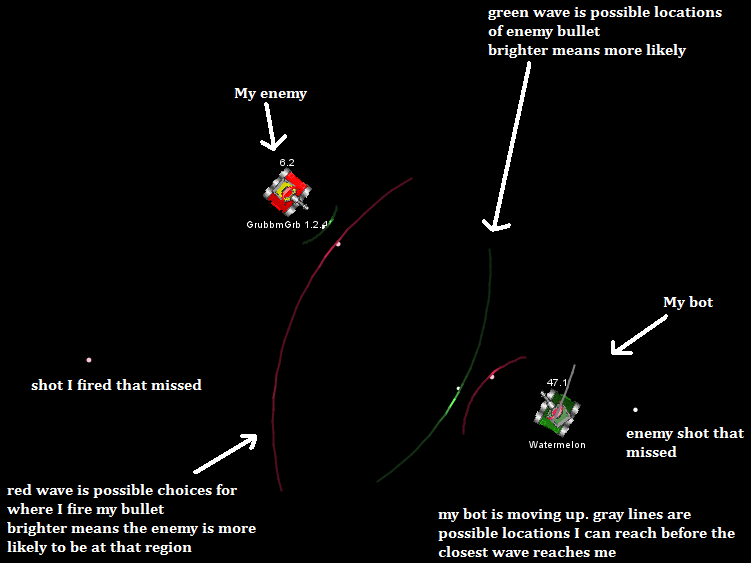Difference between revisions of "Watermelon"
m |
|||
| Line 9: | Line 9: | ||
| movement = [[Wave Surfing]] | | movement = [[Wave Surfing]] | ||
| released = 4 June 2009 | | released = 4 June 2009 | ||
| − | | best_rating = | + | | best_rating = 1672.3 ELO |
| − | | rating = | + | | rating = 1672.3 ELO |
| − | | current_version = 3a | + | | current_version = 3a |
| download_link = http://robocoderepository.com/BotFiles/3648/synapse.Watermelon_3a.jar | | download_link = http://robocoderepository.com/BotFiles/3648/synapse.Watermelon_3a.jar | ||
}} | }} | ||
| Line 46: | Line 46: | ||
[[Category:Bots|Watermelon]] | [[Category:Bots|Watermelon]] | ||
[[Category:1-vs-1 Bots|Watermelon]] | [[Category:1-vs-1 Bots|Watermelon]] | ||
| − | |||
[[Category:MegaBots|Watermelon]] | [[Category:MegaBots|Watermelon]] | ||
| − | |||
Revision as of 06:03, 5 June 2009
| Watermelon | |
 | |
| Author(s) | Synapse |
| Extends | AdvancedRobot |
| Targeting | GuessFactor Targeting (traditional) |
| Movement | Wave Surfing |
| Released | 4 June 2009 |
| Best Rating | 1672.3 ELO |
| Current Rating | 1672.3 ELO |
| Current Version | 3a |
| Download | |
Structure
It's built on a modular framework, coded pretty cleanly, but not good enough yet to be open source. Maybe once it's done something on the rumble that will change. Currently developing in Eclipse. Early on I used an educational IDE called BlueJ (its interface is a UML diagram, very pretty).
Movement
Uses Wave Surfing, implemented in a straightforward manner. To the extent that that's possible grumble grumble. I used Simonton's non-iterative Wall Smoothing code, and my own future position prediction. It took forever to realize that the future prediction needs to call the wall smoothing function for each imaginary tick, but I finally got it.
It kind of uses the Musashi Trick, by seeding the bins with a single hit at Guess Factor 0. The magnitude of the initial seed is such that the first real hit overrides it. Actual hits are smoothed, with a rolling average preferring new data to old.
Bot width is considered, averaging the danger from covered bins. There's no dive-in protection; bot width takes care of that.
Guess Factors are segmented by velocity.
Firing
Guessfactor gun, segmented on velocity only. The next big change is to segment on other variables - once I have multiple segments adding the third and fourth segments will be much easier.
Radar
Uses the same radar in melee and in 1v1 conflicts - turns the radar just past the furthest angle that least recently seen bot could have reached since it was last spotted.
Debug Graphics
Paints waves for enemy bullets and its own bullets, with brighter segments where the bins are fuller. Also marks predicted future positions.
